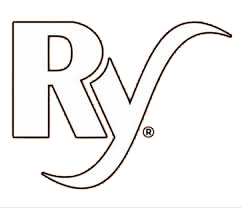Electrical Fault?…..What Should I Do & Know?

It is always important to remember that if you have an electrical fault, you should never interfere with your electrical cables or components beyond your qualifications. However the below checks may help you resolve the issue or diagnose the cause before calling a fully qualified electrician.
No power to your whole property?
- If you have no electricity supply to your whole property i.e nothing is working carry out simple checks before calling an electrician. You can start by checking with neighbours to ensure that there is not a mains power cut or mains supply/cable damage. You could also check on UK Power networks website to see any notifications of outages in your area (South East England).
- Should the above not be the case, locate your properties fuse board to see if anything has tripped. If any of the fuse switches are down, including the RCD try and pop them back up again to see if it was a one off power surge or fault. If the board trips again or the switch does not stay in the up/on position then there is still a fault on the system.
- If as above trying to reset the fuse board has no luck, unplug and all electrical appliances/components and turn off any switches left on. I.e fridges, TV’s, Toasters, Cookers. Then try to reset any fuse switches again.
- If any of the above do not work then its best to call in the professionals to carry out further fault finding. You should always use a trusted electricians such as those members of either NAPIT, NICEIC or ELECSA.
I have some power … but not everywhere?
- Most properties will have different circuits and more than one. This means that certain lights, sockets & other components may be separated. If some sockets, lights or components do not have any power check your fuse board to see what circuit they are on. Some older properties may not have the circuits labelled which can then be difficult, however a lot of newer fuse boards will tell you what circuit the above fuse switch belongs too.
- If you can identify from your fuse board which circuits are which, you may be able to see if this particular circuit has just tripped the RCD etc. This will then narrow down the appliances you can try to unplug, before re-setting the fuse board.
- If there is only one component/appliance/switch or light not working it is likely that there will be a fault within that part/component. If it is an appliance not working, plug it in to another socket to test. If its a light/socket/other more than likely you will require an electrician to narrow down the fault within that component and if needed replace. If its is an appliance such as a fridge/electric oven/electric hob, its best to check and see if its something the electrician carries out repairs on. This is more specialized and may require an appliance engineer or the manufacturers.
How do i get my fault resolved as quickly and cost effectively as possible?
- Like all trade industries the more information the operative has prior to their visit, the better! This is as they can attempt to bring suspected parts or point you in the right direction if they feel their visit will not be necessary. For example when you call up and say “One of my lights in the bedroom isn’t working” tell them what type of light it is such as a standard pendant, a spotlight etc. Then the company or operative can dig further by asking other questions to try and narrow down possible causes and therefore be better prepared to try and solve it within the first visit.
- If you suspect what may be causing the fault such as; a faulty dimmer switch/module for example. Why not have one on site, that you can return if unused. This is as electrical components compared to other industries are a lot more aesthetically orientated. Therefor the electrician may have a white plastic one on his van, but he may not have the brushed chrome designer one you would want fitted to match others.


